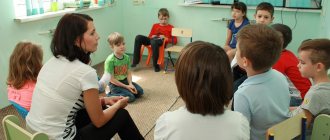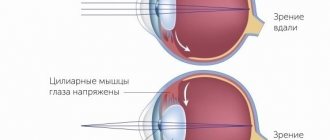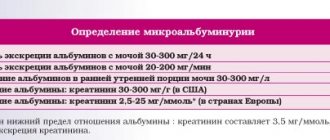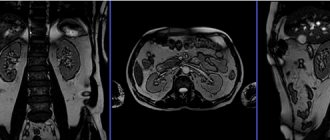Definition of basic concepts
Empiricism , what is it? This is a direction in philosophy that denies any sources of knowledge other than sensory (direct) experience.
Empiricism in psychology suggests that people gain most of their knowledge through study and experience rather than through genetic predisposition.
Empiricists (empiricists) , who are they? These are supporters of the epistemological position, in which knowledge is considered reliable only when it is based on experience.
Empiricists are inclined to practical activity, believing that activity is a direct path to obtaining a result.
Empirically , through experience, experiment, or personal observation.
Empirical material , any material collected empirically or through personal observation/data collection.
Empirical thinking , thinking, the product of which is the primary generalization of experience gained through practice. This is a simple stage of cognition that does not delve into theoretical abstractions.
Empirical thinking is often confused with practical thinking, but they are actually two different categories.
Empirical generalization , the creation of certain conclusions or the identification of properties of objects according to a single common feature, expressed in verbal form. Creating classifications by properties allows you to work with a large volume of units (objects or facts).
Empirical observation , one of the methods of empirical research, expressed in the deliberate and directed perception of any subject (object) of knowledge in order to obtain information about its qualities, properties and relationships.
Empirical analysis , analysis of an object based on sensory perception and personal experience.
Empirical method , a method of research through observations and experiments with further identification of patterns.
Empirical evidence , information that confirms or refutes the belief in the veracity of any judgments. All evidence is based primarily on feelings.
Empirical testing , a method in which the subject of research is subjected to systematic observation in order to obtain reliable information.
Empirical data in psychology , data obtained through the senses, experimentally.
In psychology, this is material collected after direct observation or experimentation, without accompanying theoretical inference.
Classification of psychology methods
Self-control - what is it in psychology, definition
There are several approaches to the classification of psychological research methods. All methods of psychology were briefly described by B.G. Ananyeva:
- Methods of organizing research. The entire methodology is based on them. These include cross-sections, a comprehensive study of mental phenomena, a comparative method, which involves conducting research in control and experimental groups, and a longitudinal study based on ascertaining and control diagnostics.
- Methods for collecting empirical data. With their help, they study something and obtain facts. These include experiment and observation, testing and surveys, questionnaires and conversations, studying products of activity, biographies, and modeling.
Collection of empirical data
- Methods for quantitative processing of experimental data. These include mathematical and statistical methods.
- Interpretive methods. They allow, based on quantitative results, to create a descriptive description of the phenomena being studied.
Empirical and theoretical thinking
In the history of psychological knowledge, conceptual thinking has been divided into two categories .
Theoretical and empirical thinking are distinguished as two concepts opposed to each other.
The first type of thinking is aimed at identifying, recording and describing the results of sensory experience and is called empirical.
Another type of thinking works with the essence of subjects, hidden and inaccessible to the senses and the laws of development. This type is called theoretical.
Both empirical and theoretical thinking are based on a special type of abstraction and generalization . For the empirical level, this is a comparison of individual qualities of objects and the search for differences between them based on the identified qualities.
Those. First, formally similar features are identified, which can be assigned the status of “general”. Then they are separated from others, fixed using a word-concept. The result is knowledge based on external (visual) evidence .
The empirical type of thinking does not imply an analysis of the characteristics of the object itself, the connection of its sides, hidden from the senses. Thought moves in the direction from the particular to the general, without delving into the nature of objects.
Theoretical thinking works with specific features, isolating the basis for the unity of entire systems.
Empirical methods in psychology
1. The researcher himself causes the phenomenon he is studying and actively influences
on him.
2. The experimenter can vary, change the conditions under which
the phenomenon occurs.
Kuraev G.A., Pozharskaya E.N. Human psychology. Lecture 3.
3. The experiment has the possibility of repeated playback
results.
4. The experiment makes it possible to establish the mathematical
formulation of quantitative laws.
The main goal of a psychological experiment is to
make mental patterns accessible for objective observation.
In the structure of the experiment, we can outline a system of research stages and
tasks:
I - theoretical stage of research (problem formulation). At this stage
the following tasks are solved:
a) formulation of the problem and research topic, the title of the topic should
include the basic concepts of the subject of research,
b) definition of the object and subject of research,
c) determination of experimental tasks and research hypotheses.
At this stage, known facts on the topic are clarified
research obtained by other scientists, which allows us to determine the circle
solved problems and unsolved problems and formulate hypotheses and problems of con-
concrete experiment. This stage can be considered as relatively
independent research activities of a theoretical nature.
II - methodological stage of the study. At this stage it is being developed
experimental technique and experimental design. In the experiment there are two
a number of variables: independent and dependent. Factor changeable
by the experimenter is called the independent variable; factor, change
which the independent variable causes is called the dependent variable.
The development of an experimental plan involves two points: 1)
drawing up a work plan and sequence of experimental procedures and 2)
mathematical model for processing experimental data.
III - experimental stage. At this stage it is carried out
direct experimentation. The main problem at this stage is
creating in subjects an identical understanding of the task of their activity in
experiment. This problem is solved through the reproduction of identical conditions
for all subjects and instructions, which aims to bring everyone
subjects to a common understanding of the task, fulfilling the role of a unique
psychological attitude.
IV - analytical stage. At this stage, quantitative
analysis of results (mathematical processing), scientific interpretation
facts received; formulation of new scientific hypotheses and practical
recommendations. Regarding the mathematical coefficients of statistics, it follows
remember that they are external to the essence of what is being studied
mental phenomena, describing the probability of their manifestation and the relationship between
frequencies of compared events, and not between their entities. The essence of phenomena
Kuraev G.A., Pozharskaya E.N. Human psychology. Lecture 3.
is revealed through subsequent scientific interpretation of empirical
facts.
The expansion of the use of the experiment progressed from elementary
processes of sensation to higher mental processes. Modern
The experimental method exists in three forms: laboratory,
natural and formative experiment.
Three considerations are put forward against the laboratory experiment Uka-
refers to the artificiality of the experiment, analyticity and abstraction
experiment, on the complicating role of the influence of the experimenter.
A unique version of the experiment, representing, as it were,
an intermediate form between observation and experiment is the method
so-called natural experiment proposed by a Russian scientist
A.F. Lazursky (1910). His main tendency is to combine experimentalism
research with natural conditions. Instead of translating
the phenomena being studied in laboratory conditions, researchers try to select
natural conditions suitable for their purposes. Natural experiment
which solves the problems of psychological and pedagogical research is called psycho-
Holological-pedagogical experiment. Its role is exceptionally great in
studying the cognitive capabilities of students at different age levels
stages.
Another type of experimental method is called
formative experiment. In this case, the experiment acts as
a means of influencing, changing people's psychology. Its originality lies
in that it simultaneously serves as both a means of research and a means
formation of the phenomenon being studied. It is typical for a formative experiment
active intervention of the researcher in the mental processes he is studying. How
an example of a formative experiment can be considered modeling
psychological and pedagogical situations. This method is based on the design
new educational and training programs and ways of their implementation.
Psychodiagnostic methods allow us to record psychological
differences both between people and between groups of people united by
some (not always related to psychology) signs.
Diagnosed symptoms may include psychological
differences in age, gender, education and culture, mental states,
psychophysiological characteristics, etc.
Psychological tests.
The English word
test
means "test" or
"trial". The term was introduced into the practice of psychological research in
at the end of the last century by the American scientist J. Cattell. Wide
Kuraev G.A., Pozharskaya E.N. Human psychology. Lecture 3.
tests have become widespread since A. Binet together with T. Simon
developed their own system for determining the mental development of children. What
is this a test? The test is a short, standardized test that does not require
complex technical devices that can be processed mathematically
data.
The test method in its original specific meaning (definition
intelligence quotient) has raised a number of serious objections. IN
in the original version, using tests, they tried to draw conclusions about
personality based on the fact of the test taker’s decision or failure to solve the test. When
individuals who have gone through different paths of development are presented with the same
standard tests and, based on their solutions, make a conclusion about their talent, then
make a mistake by not taking into account the dependence of the results on the conditions of development.
This error was further exacerbated if the experimenter assumed that
level established by test test at one stage
development will continue to characterize this subject in the future.
All this does not mean, however, that testing is unsuitable for
research. Currently, the test method is used in psychology along with
other methods. With its help, they strive to identify certain abilities,
skills, abilities (or lack thereof), most accurately characterize some
personality traits, to identify the degree of suitability for work in a particular
areas, etc.
The diagnostic value of the test depends on professional literacy
experimenter and experimental conditions. Diagnostic value
test also depends on the reliability of the psychological fact that was
is the basis of the test, i.e. depending on how it was designed
test: whether it was the result of a large preliminary experimental
work or was the result of approximate, random and superficial
observations? Insufficiently validated and validated psychological tests
may cause serious errors that could cause damage to
pedagogical practice, in the field of professional selection.
Survey methods, interviews, questionnaires.
Among the most
Common means of psychodiagnostics include all kinds of surveys, i.e.
obtaining information from the words of respondents. Scope of surveys in
psychological research is quite extensive:
— the survey acts as the main means of collecting primary information on
early stages of research;
— using interview data, working hypotheses are put forward;
— the survey serves to clarify and control the data received by others
methods.
All the variety of survey methods used in psychological
research can be reduced to two main types:
Kuraev G.A., Pozharskaya E.N. Human psychology. Lecture 3.
1) face-to-face survey - interview
conducted by a researcher on
a specific plan;
2) correspondence survey - questionnaires
, intended for independent
filling.
There are two types of interviews: standardized and
non-standardized. In a standardized interview
wording
questions and their sequence are determined in advance, they are the same for everyone
respondents. The researcher is not allowed to change any questions or
introduce new ones. Non-standardized interview technique
, vice versa,
characterized by complete flexibility and varies widely.
A researcher who is guided only by a general interview plan has
the right, in accordance with the specific situation, to formulate questions and
change the order of plan items.
Questioning
(correspondence survey) also has its own specifics. By correspondence
It is more appropriate to resort to a survey in cases where it is necessary to find out
people’s attitudes towards controversial or intimate issues, or survey
a large number of people in a relatively short period of time. Main advantage
questionnaire is the possibility of mass coverage of a large number of people.
A questionnaire guarantees anonymity to a greater extent than an interview, and therefore
respondents may give more sincere answers.
However, surveys as methods of collecting primary information are characterized by
known limitations. Their data often indicates not only
true opinions and moods of the respondents, how much about what they are
depict.
Conversation.
The conversation method is an auxiliary tool in research and
must be combined with other objective methods. There should always be a conversation
organized according to plan. Questions asked in a conversation can be
as if tasks aimed at identifying the uniqueness of mental processes.
But at the same time, such tasks should be as natural as possible.
Studying the products of activity. This method is widely used in
historical psychology for the study of human psychology in the past
historical times that are not directly observable or
experimentation. The purpose of this method is to allow us to understand patterns
psychological development of a person, based on the patterns of his
socio-historical development.
This method is widely used in child psychology - they study
products of children's creativity for the psychological study of the child.
Kuraev G.A., Pozharskaya E.N. Human psychology. Lecture 3.
Biographical method. A variation of the method of studying products
activity is the biographical method. The material here is letters,
diaries, biographies, handwritings, etc. In many cases this method is used
not alone, but in combination with other methods that complement each other. Wherein
each of the methods used reveals new aspects of the mental
activities.
Correction methods
Psychological help is often required in situations not only
existing objectively, but also subjectively experienced disadvantage.
This experience can be acute and express itself in deep dissatisfaction.
yourself, those around you, life in general, and sometimes even in suffering. In such cases
requires the provision of not just advisory, but also psychotherapeutic
help.
Psychotherapeutic assistance is individual and based on
deep penetration into the patient’s personality, his feelings, experiences,
attitudes, a picture of the world, the structure of relationships with others. For such
penetration requires special psychodiagnostic methods, which
we wrote above. Psychodiagnostic data are necessary in order to give
the opportunity for the psychologist to determine a program for further work with the client,
including corrective methods. Currently psychocorrectional
methods are a fairly extensive set of techniques, programs and methods
influence on people's behavior. Let us characterize the main directions
psychocorrectional work.
Autotraining. The method of autogenic training was proposed by the German
psychotherapist I.G. Schultz. Autogenic training received
distribution primarily as a method of treatment and prevention of various kinds
neuroses and functional disorders in the body, as well as a means of managing
human condition in extreme operating conditions. Currently
autogenic training has firmly entered the system of training athletes, all
are more widely used in production teams in the form of psychohygienic
emotional unloading procedures.
Autogenic training uses three main ways to influence
state of the nervous system. First way
associated with the peculiarities of the influence of tone
skeletal muscles and respiration on the central nervous system. Wakeful
the human condition is associated with maintaining a sufficiently high muscle
tone. The more intense the activity, the higher this tone. This most important fi-
physiological pattern underlies the entire system of autogenous
training. The relationship between the state of the central nervous system and
skeletal muscle tone allows through conscious change
Kuraev G.A., Pozharskaya E.N. Human psychology. Lecture 3.
muscle tone influence the level of mental activity. In order to
to master auto-training, you must first develop the ability to
completely relax the muscles of the body. Similarly affects the level
mental tone of the nervous system and breathing rhythm. Rapid breathing
provides high activity of the body.
Second way
effects on the nervous system associated with the use
sensory images (visual, auditory, tactile, etc.). Sensual
image is an active tool for influencing mental state and health
person. Constantly holding gloomy thoughts before the mind's eye,
Joyless pictures sooner or later undermine your health, and vice versa. Should
keep in mind that in a state of muscle relaxation the effectiveness
sensory images increases significantly.
Finally, the third way
effects on the nervous system are associated with
the programming role of the word, pronounced not only out loud, but also mentally.
This property of inner speech (in the form of self-orders) has long been used in
sports to increase the effectiveness of training, mobilize internal
reserves during competitions.
Group (socio-psychological) training. Under group tre-
ning understand the unique forms of teaching knowledge and individual skills in
sphere of communication, as well as forms of correction of violations arising from
communication.
There are a number of features of group training:








